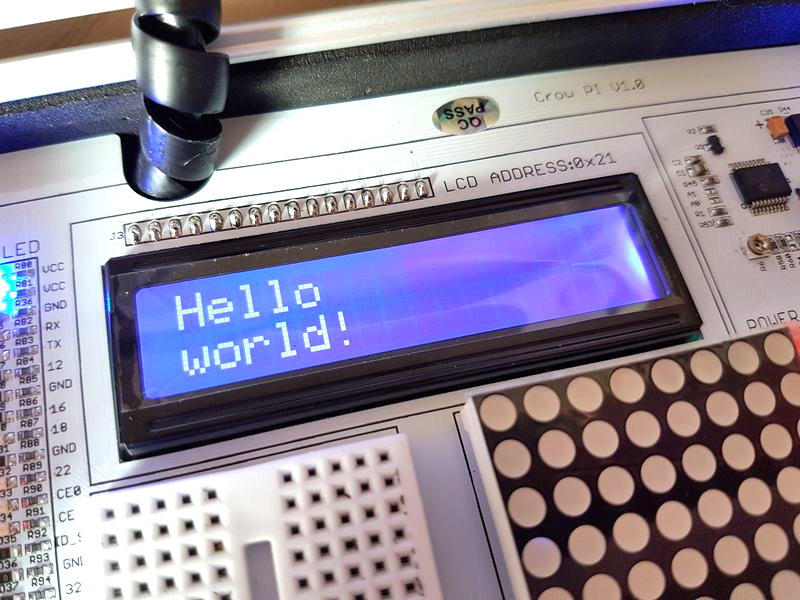.Raspberry Pi is a credit card sized bargain micro Linux machine.The goal behind creating Raspberry Pi was to create a low cost device that would improve programming skills and hardware understanding for students.The latest model of Raspberry Pi comes sporting 1 GB of RAM, 1200 MHz quad –core ARM Cortex-A53 processor,. If you are building this project on a Raspberry Pi 3 running Raspbian Jessie, you will need to make a small change in Raspi-Config so that rc.local is called a little later in the boot stack. This is a known issue with Raspbian Jessie, and for those of us who like to use rc.local for running programs on boot, this is the best way to fix the issue.
Google AI Education
The Raspberry Pi is a powerful tool when it comes to artificial intelligence (AI) and machine learning (ML). Its processing capabilities, matched with a small form factor and low power requirements, make it a great choice for smart robotics and embedded projects. Google is a champion of the Pi’s place in the AI world, its AIY voice recognition system being given away with this very magazine (issue 57, no longer available in print).

You can now buy Google's AIY projects and newer Coral AIY products for Raspberry from Mouser.co.uk
Google’s AI Education site is an ideal place to start your machine-learning journey. If you want to really understand how AI/ML works ‘under the hood’, there are lot of principles to comprehend before you even get to coding. Google has provided a self-guided suite that starts with a ‘Crash Course’ in machine learning, then expands to cover the basics of problem framing and data gathering. The main online course comprises 25 lessons over 15 hours (approximately, you can set your own pace) and comes in the form of reading materials, interactive sections, programming exercises, and video tutorials. This is then backed by a substantial collection of follow-on courses. A superb resource.

See also:
Complete Guide to TensorFlow for Deep Learning with Python
Raspberry Pi Slot Machine Projector
TensorFlow is, without a doubt, the most popular software library for machine learning on the Raspberry Pi. If you’re keen to get started and write code, TensorFlow will probably be your tool of choice. You can get a great introduction to TensorFlow in The MagPi #71, but if you are after a deep dive, Udemy offers a comprehensive 14-hour video course that covers not only the theory of machine learning, but also the practicalities of setting up the software with real-world examples and programming exercises. If you’re after a hands-on learning approach, this may well suit. Don’t be put off by the steep (£195) price – this course is often promoted and was £13 at time of writing.
Beginning Artificial Intelligence with the Raspberry Pi
This book is perfectly tailored to the Raspberry Pi community. Not only does it cover the principles behind concepts such as neural networks, fuzzy logic, and shallow versus deep learning, it also provides practical, fun projects to code and build. Starting with simple examples of learning, you can play your Pi at noughts-and-crosses and Nim. Along the way, the projects are made fun through the use of the Pi’s GPIO header, using LEDs and switches to bring code to life. You then progress to robotics, covering obstacle avoidance and light seeking. A steady learning curve culminates in the building of ‘Alfie’, your very own artificially intelligent robot vehicle. If you fancy building the winner of the next Pi Wars, this could be the perfect reading material.
Raspberry Pi 4 Projects
Essential bookmarks: Providers of popular AI/ML tools
- Google Coral: Recently featured in The MagPi #79, this exciting new USB accelerator from Google transforms the Raspberry Pi’s AI capabilities by adding a dedicated neural network processor. Also, don’t miss Google’s Coral AIY site.
- OpenCV: The tool of choice for many robot builders, the Open Source Computer Vision Library not only gives your Pi sight, but the ability to ‘comprehend’ what it sees. A powerful tool for intelligent object recognition.
- TensorFlow: If you want implement machine learning on a Pi, chances are you’ll be using TensorFlow to do it. The official site not only features full documentation, but also a range of courses
Raspberry Pi Server Projects
Learn by example: Do you learn by doing? Try these

Raspberry Pi Beginner Projects
- How to Build DIY AI Projects Using Google TensorFlow and Raspberry Pi. A collection of AI/ML projects to build or provide inspiration. From introductions to TensorFlow to a wide range of projects including magic mirrors and an impressive cucumber sorting machine!
- AI on Raspberry Pi with the Intel Neural Compute Stick. Like Google, Intel has also released a USB-based neural co-processor. This tutorial is a great ‘getting started’ guide, talking you throughinstallation and on to your first facial recognition app.
- Raspberry Pi Pokédex. PyImageSearch is an incredible resource for learning OpenCV. This detailed tutorial is ideal for younger minds, using a Pi and the official touchscreen to create a Pokédex that can ‘recognise’ plush Pokémon.